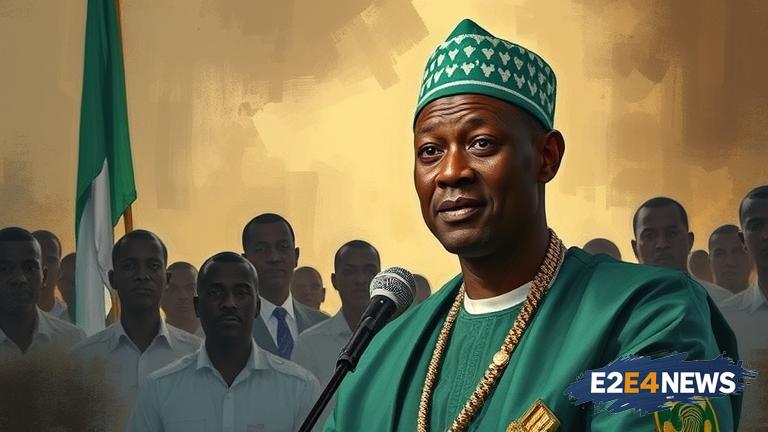The scourge of financial crimes has been a longstanding challenge for Nigeria, with far-reaching consequences for the country’s economy and global reputation. However, with the appointment of Olukoyede, a new era of determination and commitment has dawned on the nation’s anti-corruption efforts. Olukoyede’s unwavering resolve to tackle financial crimes has sent a strong message to perpetrators that their days of impunity are numbered. The Economic and Financial Crimes Commission (EFCC), under Olukoyede’s leadership, has been working tirelessly to investigate and prosecute cases of financial malfeasance. One of the key strategies employed by the EFCC is the use of advanced technology to track and monitor suspicious transactions. This approach has yielded significant results, with several high-profile convictions and recoveries of stolen assets. Furthermore, Olukoyede has emphasized the importance of collaboration with international partners to combat financial crimes. This has led to the signing of several memoranda of understanding with foreign governments and agencies, facilitating the exchange of information and expertise. The EFCC has also launched a series of public awareness campaigns to educate citizens on the dangers of financial crimes and the importance of reporting suspicious activities. In addition, Olukoyede has introduced a number of reforms aimed at strengthening the EFCC’s internal processes and enhancing its operational efficiency. These reforms include the establishment of a new department dedicated to investigating and prosecuting cases of cybercrime. The EFCC has also increased its engagement with the private sector, recognizing the critical role that businesses play in preventing and detecting financial crimes. Olukoyede’s leadership has been praised by stakeholders, including the Nigerian government, civil society organizations, and the international community. The United States, in particular, has commended Nigeria’s efforts to combat financial crimes, citing the country’s progress in meeting its international obligations. Despite these successes, however, the fight against financial crimes is far from over. Olukoyede has acknowledged the challenges that lie ahead, including the need to address the root causes of corruption and to build a more robust and sustainable anti-corruption framework. To this end, the EFCC is working closely with other government agencies, including the Ministry of Justice and the National Assembly, to develop and implement a comprehensive national anti-corruption strategy. This strategy will focus on preventing corruption, investigating and prosecuting corruption cases, and recovering stolen assets. The EFCC is also engaging with civil society organizations and the media to raise awareness about the dangers of financial crimes and to promote a culture of transparency and accountability. In conclusion, Olukoyede’s leadership has marked a significant turning point in Nigeria’s fight against financial crimes. With his unwavering commitment to transparency and accountability, the EFCC is poised to make even greater strides in the years to come. As the country continues to grapple with the challenges of financial crimes, one thing is clear: the era of impunity is over, and a new era of accountability has begun. The international community is watching with keen interest, and Nigeria’s progress in this area will have far-reaching implications for its global reputation and economic development. The fight against financial crimes is a collective responsibility, and it requires the active participation of all stakeholders, including government agencies, civil society organizations, the private sector, and individual citizens. By working together, Nigeria can overcome the scourge of financial crimes and build a more prosperous and sustainable future for all its citizens.
